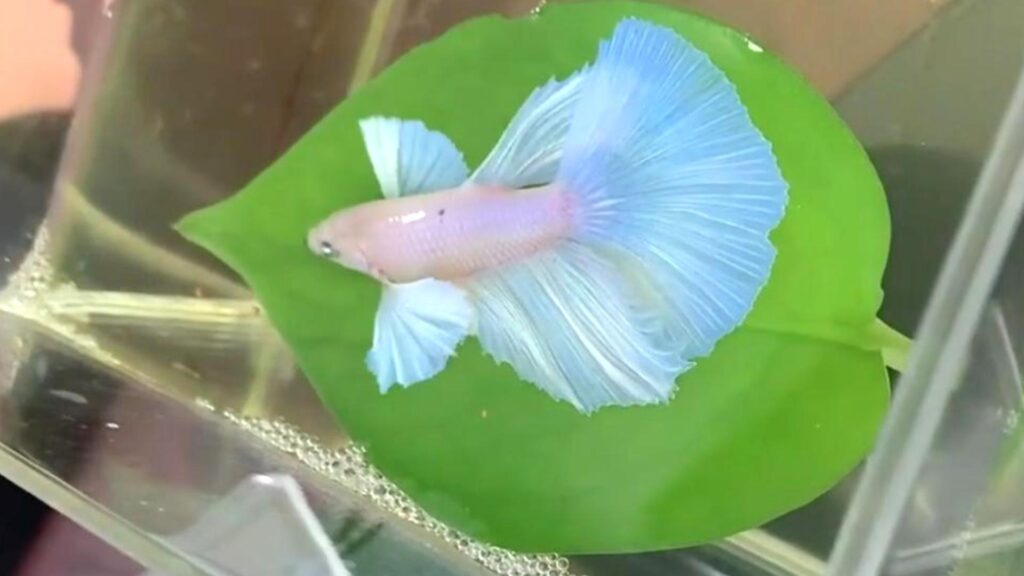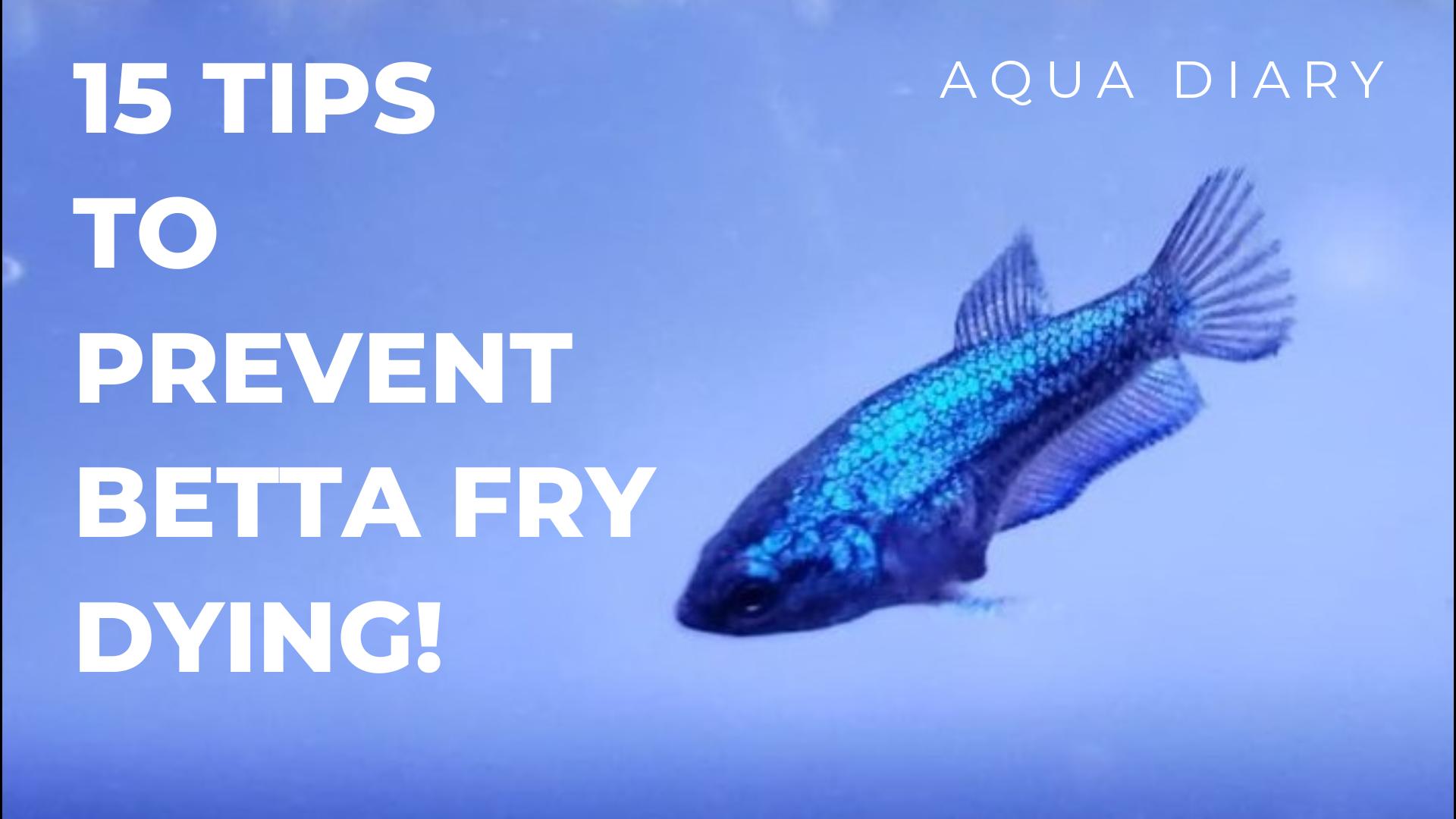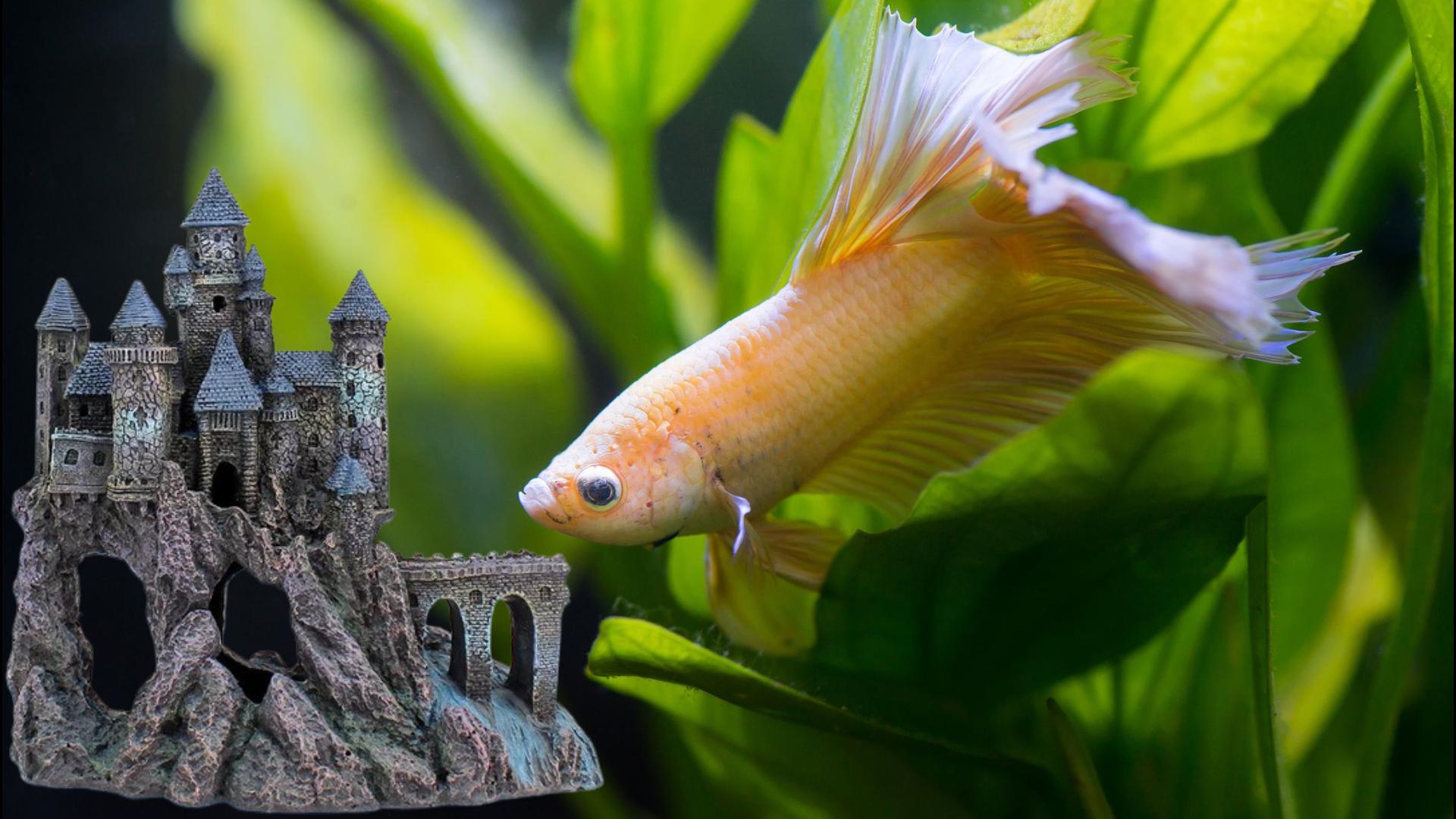Betta fish are one of the most colorful and captivating fish you can keep in an aquarium. Unfortunately, there are many Betta fish myths and misconceptions about these beautiful fish all over the world. In this post, we’ll debunk 20 of the most common betta fish myths and set the record straight on how to properly care for these amazing fish. Let’s get started.
#1 Betta fish can see in the dark.
While Bettas are equipped with night vision, they do not see in complete darkness. Betta fish can detect very small amounts of light, which helps them navigate in low-light conditions. Bettas rely heavily on their sense of smell to locate food, so they may find their way to a meal even in the dark. However, if there are other objects nearby, they may have difficulty finding their food. Therefore, it’s critical to provide them with a clear and unobstructed feeding area and a low light source at night.
#2 Asian betta farms are cruel to these fish.

Actually, Asian betta farms are crucial to the betta fish industry and responsible for much of the world’s betta fish breeding. These farms are often family-owned and operated, and have bred bettas for generations. Betta farms focus on producing high-quality and healthy bettas, rather than promoting them for fighting purposes. In addition, betta farms are known for their expertise in maintaining optimal water quality, providing proper nutrition, and managing breeding programs to develop new strains of betta. Many betta communities and breeders’ associations work closely with these farms to acquire new stock and improve the overall health and diversity of the betta fish population. While it is true that some betta farms may not meet proper standards, the majority of them are committed to responsible breeding and care of their fish.
#3 Betta lives in tiny puddles and prefers to live in small spaces.
Bettas are native to Asia and found in rice paddies, ponds, and slow-moving streams. While they may sometimes be found in puddles, this is not their ideal environment. Like most living creatures, bettas prefer plenty of room to move around. When transferred from a small cup to a larger aquarium, they will happily explore every inch of their new tank. Their color will improve dramatically. The minimum amount of space a single betta requires is debated, but generally, at least 5 gallons is recommended.
#4 Fish are dumb, you can’t interact with them.
Betta fish are highly intelligent and can be trained to perform tricks, such as jumping through hoops following your fingers, and more. They also recognize their owners and form bonds with them. With proper care and attention, bettas can thrive and display their full range of intelligence and personality. It is important to provide a healthy and stimulating environment for your betta to keep them active and engaged. So don’t underestimate the intelligence of these beautiful fish, and bond with your aquatic companion!
#5 Betta fish eat plant roots.

This myth originated with an individual who thought it was an excellent idea to put a betta fish in a plant vase. He did not feed it or change the water. Sadly, countless people went along with it without thinking. Bettas are carnivorous and eat insects, larvae, and worms in the wild, and require a balanced diet in captivity. While they may nibble on plant roots when they are hungry, they do not eat plants as a staple in their diet. It is important to provide bettas with access to the water surface for breathing and a healthy living environment, even if live plants are included in their tank setup.
#6 Betta fish are lazy
Betta fish are not naturally lazy. They are active and playful in the proper setting. Betta fish are often seen as lazy because they are kept in small containers at pet stores, which restrict movement. Additionally, some owners keep their bettas in unheated water, which can make them lethargic. However, in a proper setting with adequate space, water temperature, and enrichment, bettas can be quite active and playful. They may push moss balls around, dance around their tank, display their tails, and engage in other activities.
#7 Betta gets disposed of in toilets more than you think
Unfortunately, people often dispose of unwanted fish, including bettas, by flushing them down the toilet. This is not only cruel, but it also has negative environmental impacts. Flushing fish can introduce diseases and parasites into the water system, and fish may not survive. Pet owners should take responsibility for their animals and properly care for them, even after they die. If a fish needs to be rehomed, donating it or finding a reputable rescue organization can be a better option than disposing of it down the toilet.
#8 Betta Aquariums Don’t Need Water Heaters or Filter
Betta aquariums need a water heater and filter. Betta fish are tropical fish and require a consistent water temperature between 76 to 81 degrees Fahrenheit to thrive. Therefore, a water heater is necessary to maintain this temperature range, especially in cold conditions. Additionally, a water filter is crucial to keep the water clean and healthy for fish. Betta fish produce waste, and without a filter, the accumulation of waste and uneaten food in the water can make it toxic. This can lead to health issues and death. A filter helps remove these harmful substances and maintains good water quality. It is important to choose a filter with a gentle flow to prevent damaging the betta’s delicate fins.
#9 Betta fights are a common hobby in Asia
Betta fish fighting, also known as Siamese fighting fish fighting, was historically a popular pastime in Thailand, where the fish is native. However, in recent years, the Thai government has cracked down on this practice, which is now illegal in the country. The government has also encouraged the breeding and promotion of betta fish as attractive and peaceful species for hobbyists, rather than promoting them for fighting.
#10 Betta fish do not live long.
Many people believe that betta fish do not live long, but this is a myth. Betta fish can live three to five years if housed properly. Unfortunately, inadequate care has led to many betta fish dying within a few months of being taken without proper knowledge. Companies that market fish are responsible for this misconception.
#11 Bettas breathe air and don’t need filters.

Bettas possess a labyrinth organ that allows them to breathe air from the surface of their tank, but this does not mean they don’t need a filter. While they can survive in low-oxygenated water, they still need clean water to thrive. A filter removes waste materials and uneaten food from the tank. This prevents the water from becoming toxic and ensures the betta has a healthy environment to live in. Just because bettas can survive in poor conditions doesn’t mean it’s humane to keep them that way. Proper care, including a filter, is necessary for a betta to thrive.
#12 Female bettas are peaceful
It is a common misconception that female bettas are peaceful and can be housed together. However, the truth is that female bettas can still be aggressive towards each other. Under the right conditions, female bettas can live together successfully in what is known as a “sorority” tank. To keep female bettas together, you need a minimum 10-gallon tank with a filter and heater. You also need plenty of fake plants and decorations for fish to hide. It’s essential to choose female bettas that are less aggressive and monitor them closely for the first few weeks to ensure they don’t fight.
#13 Betta Do Not Care About Tank Decorations
This statement is a myth. Bettas care about their tank decorations, and it is important to provide them with a stimulating environment. Bettas are intelligent and curious fish that enjoy exploring their surroundings. They benefit from having plants and decorations in their tank that provide hiding places and places to explore. It is important to choose decorations that are safe for your betta and won’t harm its delicate fins. Overall, providing a well-decorated and stimulating environment is important for your betta fish’s health and well-being.
#14 Betta originated in Western countries
This is not true. It was primarily found in Asian countries. The betta fish industry has brought significant economic benefits to Thailand. This is evidenced by Apple’s decision to feature a betta fish photograph taken by a Thai photographer, Visarute Angkatavanich. This is the background image for the iPhone 6 and 6s. The BBC has also recognized the betta fish as a significant cultural symbol in Thailand with a positive historical legacy.
#15 Female bettas do not flare and always look dull
Female bettas can exhibit many of the same behaviors as males, including flaring and building bubble nests. They also come in a variety of colors and tail types. While males are generally more colorful and have longer fins, females can still be beautiful and fascinating fish to keep. Female betta fish can also build bubble nests, but they cannot fertilize their eggs even if they place them in bubble nests.
#16 Male bettas fight to death in the wild
In the wild, male bettas would also engage in fights to establish dominance and access to mating opportunities. However, bettas have larger territories to establish. They may not encounter other males as frequently as in a small aquarium setting. Additionally, fights in the wild are not necessarily to death as one fish backs out and moves on. If this were true, males would have fought to death in the wild long ago and there would be no betta fish in the wild today. However, domestic betta fish do not have survival instincts like wild betta fish in captivity, so it is not advised to release domestic betta fish into the wild.
#17 Bettas are easy to care for and low maintenance.
Bettas are often marketed as easy and low-maintenance pets, but this is not true. While bettas are hardy and adaptable fish that can survive in a variety of environments, they still require proper care and attention. Bettas require a proper tank setup that includes adequate space, filtration, and aeration. They also need a heater to maintain a consistent water temperature, as bettas are tropical fish that prefer warm water. Without these essentials, Bettas can become stressed and susceptible to illness.
#18 Betta fish is always Sad
A betta fish’s upturned mouth structure gives the impression that it is sad. Catfish and other bottom-dwelling fish have downward-facing mouths, which enable them to feed on sand, rock surfaces, and other materials near the ground. Betta fish have up-turned mouths, which are called superior mouths in the fish world. This allows them to feed near the water’s surface, catching mosquito larvae and small insects from foliage floating in the water. This upturned mouth is a major reason why sometimes you see sadness on your betta fish’s face. It also makes you feel that they are staring at you with anger in their eyes.
#19 Betta fish are loners, they will kill other fish
While it’s true that male betta fish are known to be aggressive towards other male bettas, they can live peacefully with other species of aquatic life. In fact, some species of fish, snails, and shrimp can make great tankmates for bettas. Betta fish is known for being territorial, as long as your tank is big enough to claim his territory and add the tankmates that they can company with betta fish, they must live peacefully in a community tank.
#20 Male betta fish are better in all aspects than females.
In fact, female bettas are known to be better jumpers than their male counterparts due to their shorter fins and body structure, which allows them to jump higher. Additionally, modern breeding techniques have led to female bettas being available in a variety of colors, similar to male betta, giving pet owners the option to create a sorority tank with female bettas, which is not possible with male betta fish.
Do you think any other Betta myths were missed in our post? Let us know in the comments. Please don’t forget to give a check to other posts on our space. Thanks for checking! See you on the next topic.
20 Betta fish Myth Busted.
Have you ever wondered how fish sleep? Their sleeping habits are quite different from those of other creatures, including humans. Today, I will discuss my experience on how, where, when and how different fish catch their zzz’s.
Do fish sleep?
First things first, do fish actually sleep? While they don’t snooze in the same way mammals do, most fish do enter a rest state. Unlike humans who close their eyes during sleep, fish can’t since they have no eyelids. This is why we don’t know whether they are sleeping or relaxing. Interestingly, they also lack a neocortex, the part of the brain that typically shuts down during animal sleep.
How Do Fish Sleep?
Usually when fish sleep, they typically reduce their movement, slow down their breathing, and lower their metabolic rates. This period of rest helps them conserve energy and promotes health. Depending on the species, fish may remain motionless near the surface, hide in caves, or even create protective mucus cocoons.

When Do Fish Sleep?
Fish, like many animals, have distinct sleep schedules. Fish can be classified as Diurnal fish and nocturnal based on their sleeping behavior. Diurnal fish are active during the day and rest at night, while nocturnal species do the opposite. Factors such as migration and caring for their young can influence their sleep patterns. Certain fish like catfish and octopus, are more active at night, prowling for food while others sleep. Sleeping behavior on fish might vary depending on their type and natural habits.
Where do fish sleep?
Fish sleep very widely. Some prefer the bottom of their living space, while others hide in caves or among plants. Certain fish types like sharks have to keep moving even when sleeping to breathe through their gills. The choice of sleeping spot often revolves around safety from predators and comfort.
How Do Fish Breathe During Sleep?
Many species of bony fish and rays breathe by opening and closing their mouths to push water over their gills. This process enables them to float still for a long time, breathing while they sleep. Other species of fish must keep swimming for the water to flow across their gills. Depending on the species, researchers believe they may either swim slowly within a confined perimeter. They may also sleep in currents, keep their fins moving, or sleep with only part of their brain breathing while they are asleep.
How can you tell if a fish is sleeping?
Look for signs like reduced movement, resting near surfaces or in specific spots, and a decreased response to external factors. Observing these behaviors can give insight into their sleep patterns. They may appear motionless for extended periods, rest near the bottom of the tank or in a specific location, and be less responsive to stimuli like food or light.
How Long Do Fish Sleep?
Fish sleep duration varies by species. Some may rest for short periods multiple times a day. Others, especially nocturnal fish, may sleep longer during the day and be active at night.
Do fish swim when they sleep?
Most fish reduce their swimming activity when they sleep, often staying in one place or hovering near a chosen spot. However, certain species, like sharks, maintain slow continuous movement even during their resting state to ensure oxygen flows through their gills.
Fish sleeping may seem unusual, but understanding their unique habits gives us insight into their lives underwater. From where they sleep to how they rest, each species has its own approach to getting the necessary downtime. Next time you observe your aquarium or spot fish in the wild, take a moment to check whether they are sleeping.





